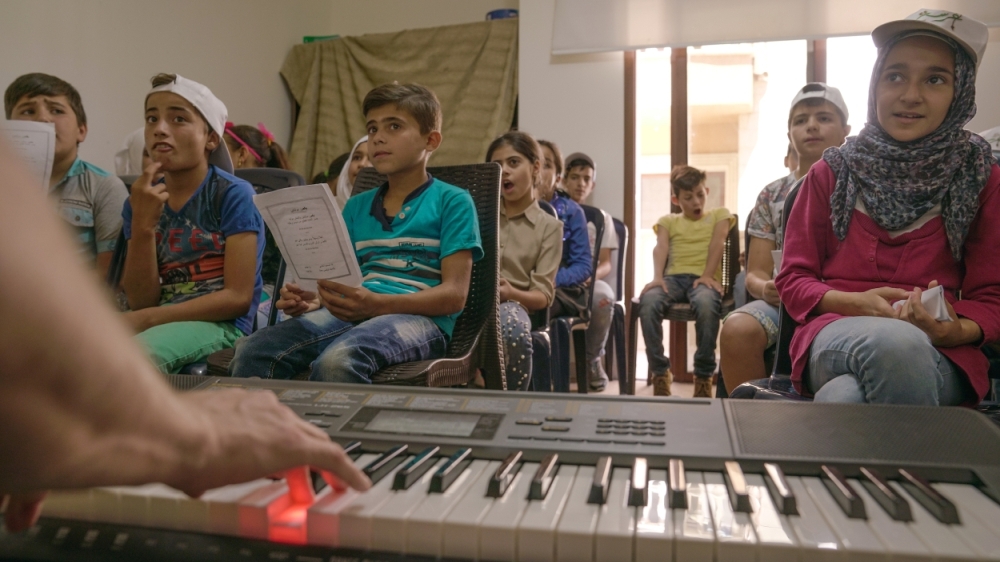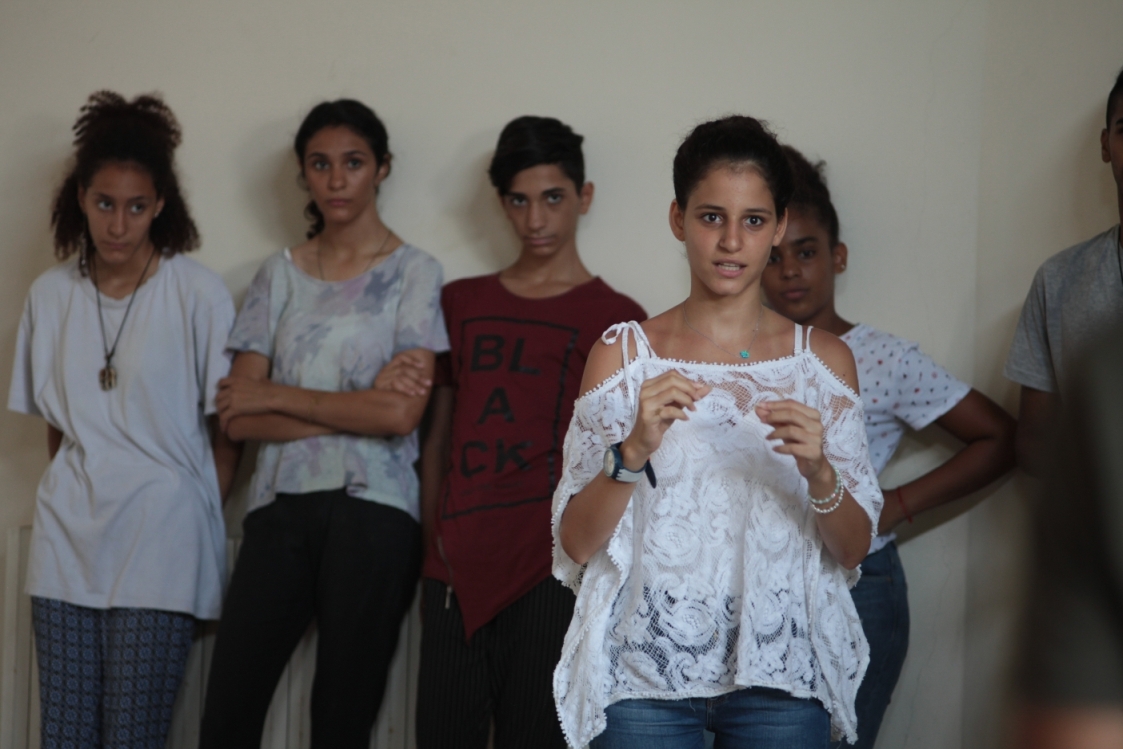BEIRUT: Lebanese theatrical nonprofit Seenaryo teaches drama, dance and song to marginalized communities, building confidence and self-esteem through the creative arts, while its teacher-support app has brought imaginative new learning techniques to hundreds of classrooms across Jordan and Lebanon.
Founded in 2015 by British expat duo Victoria Lupton and Oscar Wood, Seenaryo’s five-day intensive theater workshops are still operating despite the coronavirus pandemic, with the group’s most recent — socially distanced — project staged at Beirut’s Dar Al-Aytam Al-Islamiya orphanage in September.
Up to 30 boys and girls, or even a group of adults, participate in each workshop where, through improvisation exercises, they brainstorm ideas to create a musical play, write a script and song lyrics, and master dance routines. Each play includes five original songs set to professionally made backing tracks. The group then performs its play to a local audience.

Up to 30 boys and girls, or even adults, participate in each workshop where, through improvisation exercises, they brainstorm ideas to create a musical play, write a script and song lyrics, and master dance routines. (Supplied)
“What we’re trying to do is support our participants to feel a sense of agency and ownership over their own lives, to feel that they can contribute to their communities and have an impact on their own lives and those around them,” Lupton said. “Play-based learning and theater does that by building life skills — that might be communication skills and empathy or building confidence and a sense of self-worth.”
Initially, Seenaryo worked solely with Syrian and Palestinian refugees. “Very quickly, within a year, we realized it was neither particularly helpful in terms of existing tensions between communities nor reaching the neediest beneficiaries if we just focused on refugees, so we widened the focus to work with all marginalized people regardless of nationality,” Lupton said.
“Theater has the power to bring a community together and feel like a family.”
In 2019 alone, Seenaryo staged 15 original theater productions in Jordan and Lebanon. Aside from the co-founders, most staff are from the local community. The non-profit also runs several choirs for children and women singing music from around the world as well as original songs written by participants in two-part harmony.
The influx of refugee children has strained the education systems of Lebanon and Jordan, with low quality teaching causing children to drop out of school, while stressed teachers often quit. In response, Seenaryo created a teacher training book that this year launched as an app, Playkit, to support educators teaching children aged three to eight.
“We fit into the national strategies of dealing with this new population by helping to increase teaching quality, Lupton said. “The Playkit is a shortcut to 21st century learning techniques. Just this small intervention can have a transformative impact on classrooms and helps keep children in school.”
On the app, there are hundreds of play-based activities available including games, songs, interactive stories and tools to help classroom management. These take the form of how-to videos, flashcards, music tracks and step-by-step teaching instructions. Among the subjects covered are languages, mathematics, health, the natural and human worlds, and social and emotional learning. The app is available in Arabic, English and French.

Caption
As of early September, 113 schools were using the app along with 1,075 teachers and 28,875 children.
Usually, teachers would first undertake a three-day training course before incorporating the app into their classroom activities, but the coronavirus pandemic has halted in-person instruction as schools shut. So, Seenaryo created short, instructive three-minute videos that it sends to parents and caregivers via WhatsApp to help them home school children.
This distance-learning program, “I Learn from Home,” dispatches three new videos each week to around 2,500 families. “These lesson plans needed to be accessible to even people who are illiterate or have low educational attainment, which is why we went for video,” said Lupton. “These are a very engaging set of instructions as to how to teach that day’s lesson, whether it’s on health or maths or whatever was in the curriculum that day.”
Seenaryo is funded through various government and non-government agencies, while the organization hopes subscriptions to Playkit will enable it to provide the app to schools. Now, with Lebanon facing new hardships and traumas, Seenaryo’s community-building projects are needed more than ever and Lupton’s team is ready and determined to help.
--------------------
This report is being published by Arab News as a partner of the Middle East Exchange, which was launched by the Mohammed bin Rashid Al Maktoum Global Initiatives to reflect the vision of the UAE prime minister and ruler of Dubai to explore the possibility of changing the status of the Arab region.














